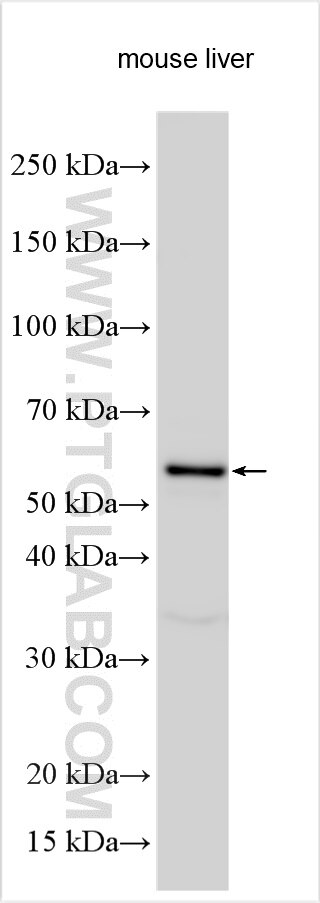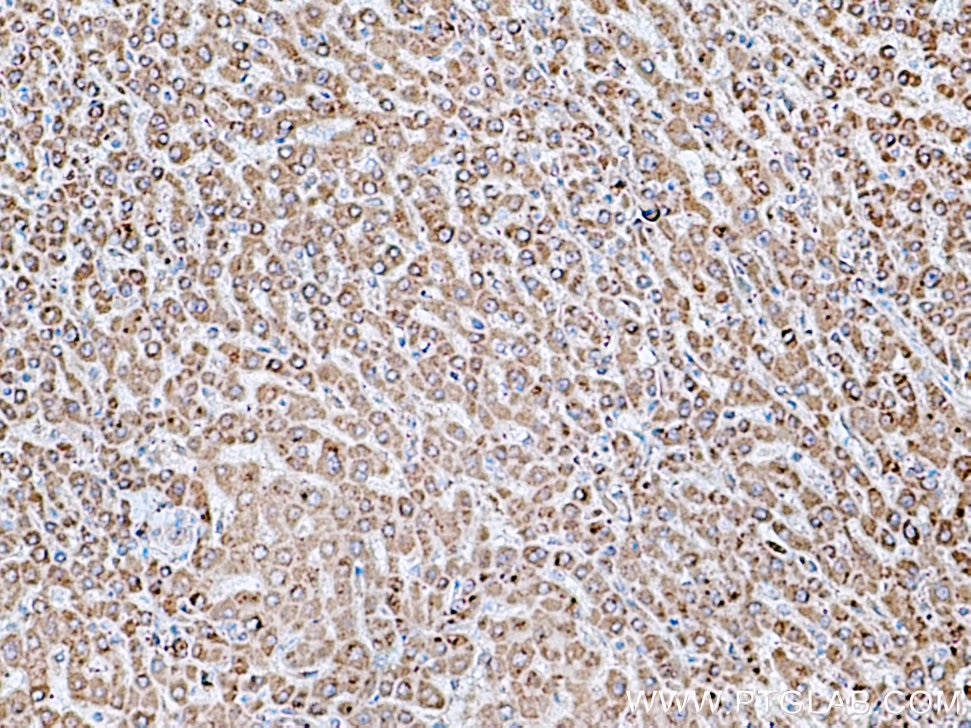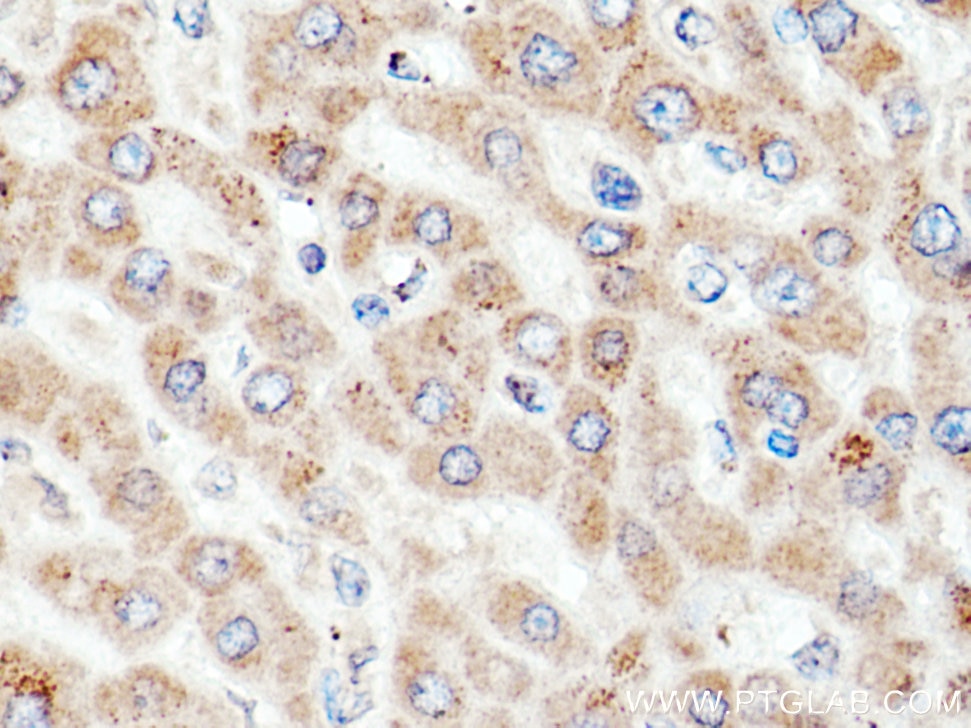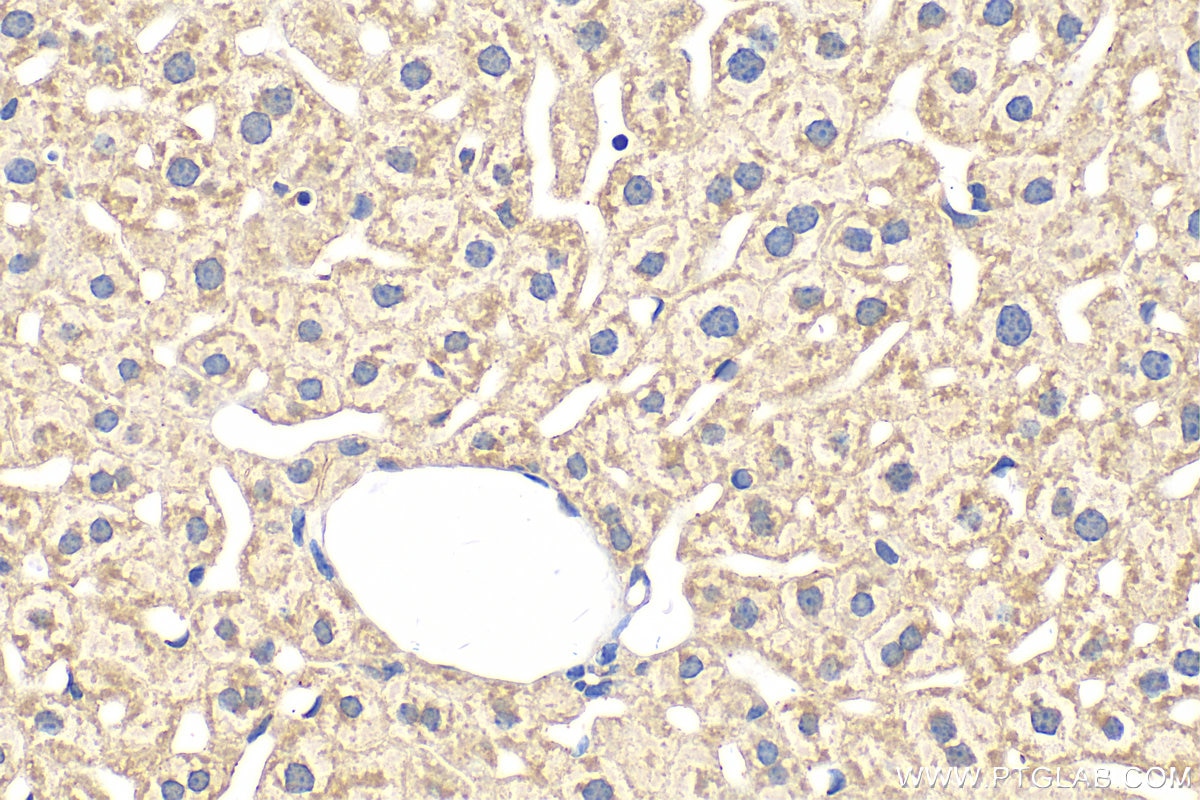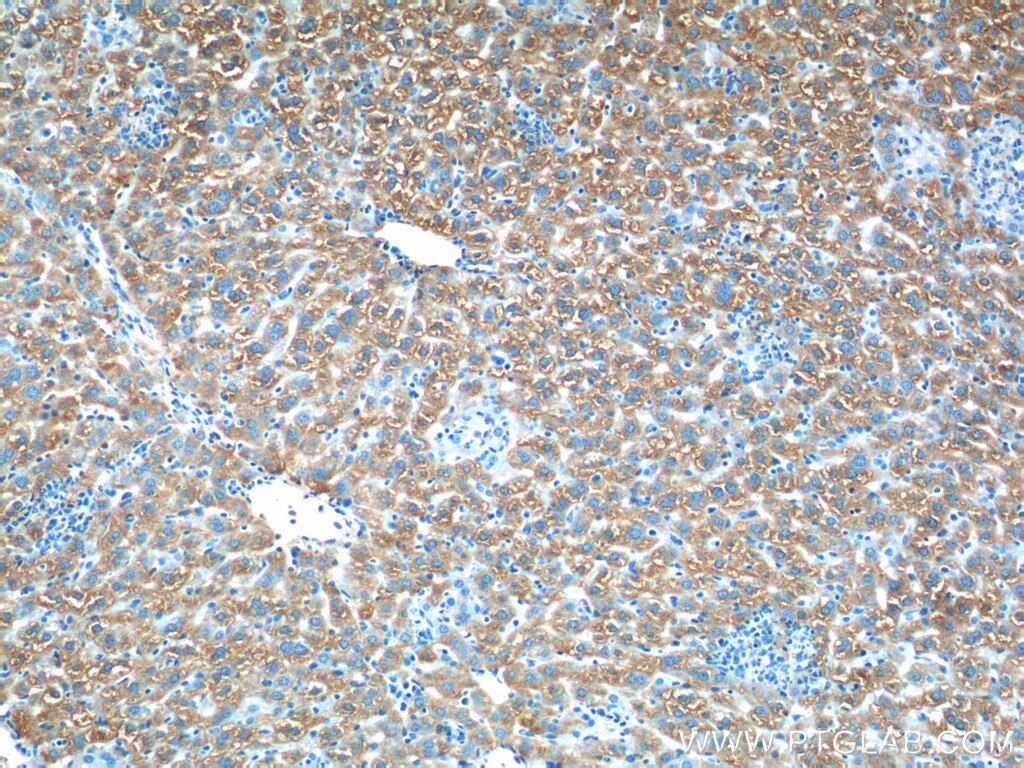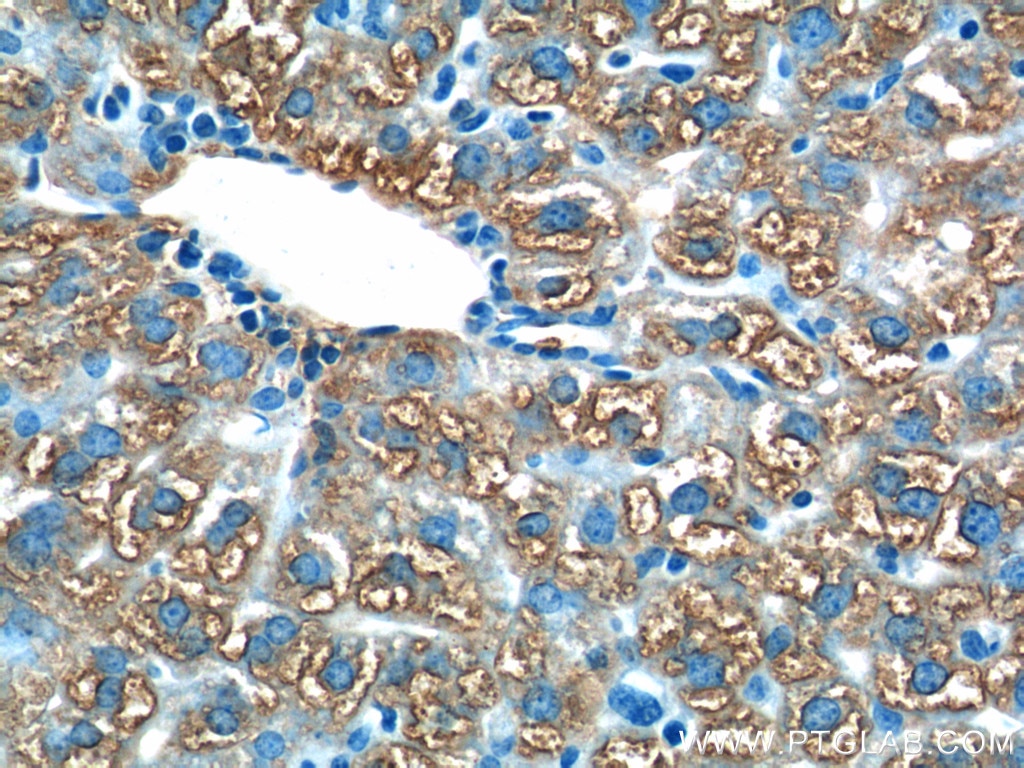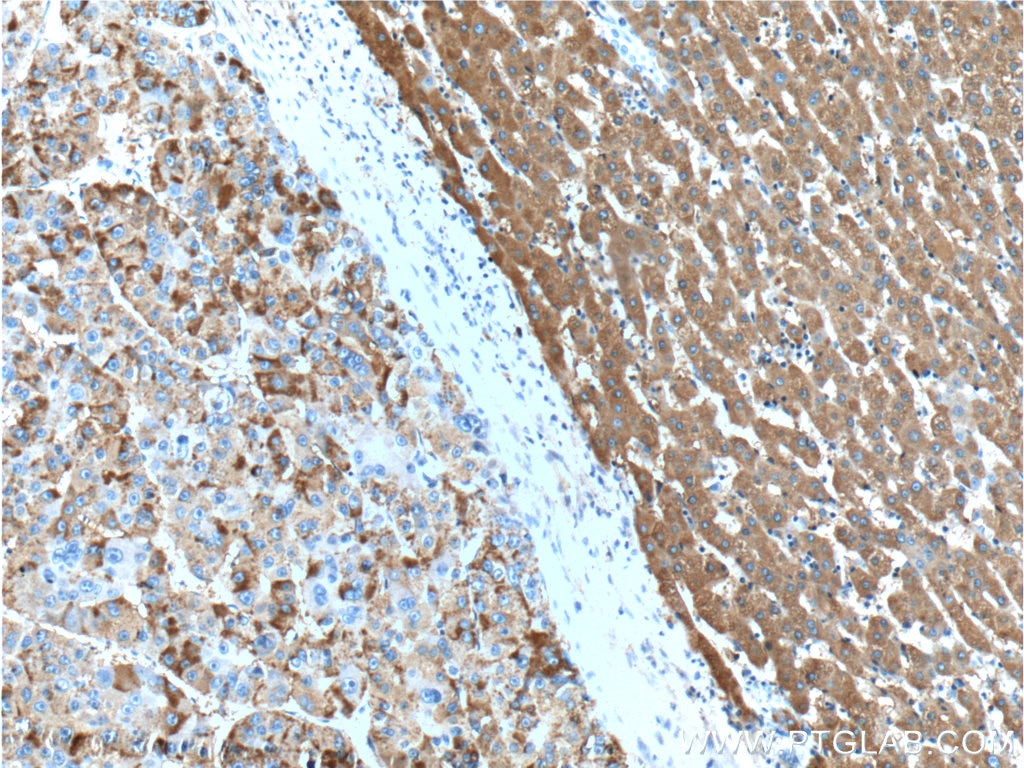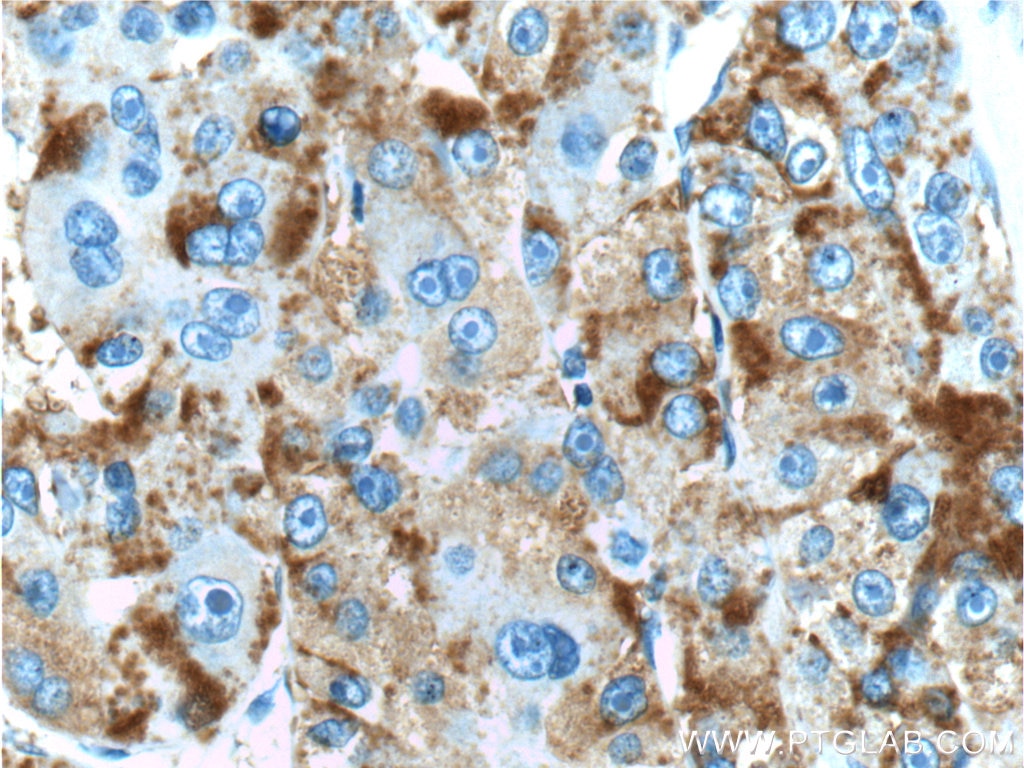Tested Applications
| Positive WB detected in | mouse liver tissue |
| Positive IHC detected in | human liver cancer tissue, mouse liver tissue Note: suggested antigen retrieval with TE buffer pH 9.0; (*) Alternatively, antigen retrieval may be performed with citrate buffer pH 6.0 |
Recommended dilution
| Application | Dilution |
|---|---|
| Western Blot (WB) | WB : 1:2000-1:16000 |
| Immunohistochemistry (IHC) | IHC : 1:250-1:1000 |
| It is recommended that this reagent should be titrated in each testing system to obtain optimal results. | |
| Sample-dependent, Check data in validation data gallery. | |
Published Applications
| WB | See 1 publications below |
Product Information
16591-1-AP targets ACSM5 in WB, IHC, ELISA applications and shows reactivity with human, mouse, rat samples.
| Tested Reactivity | human, mouse, rat |
| Cited Reactivity | mouse |
| Host / Isotype | Rabbit / IgG |
| Class | Polyclonal |
| Type | Antibody |
| Immunogen |
CatNo: Ag9373 Product name: Recombinant human ACSM5 protein Source: e coli.-derived, PGEX-4T Tag: GST Domain: 1-208 aa of BC016703 Sequence: MRPWLRHLVLQALRNSRAFCGSHGKPAPLPVPQKIVATWEAISLGRQLVPEYFNFAHDVLDVWSRLEEAGHRPPNPAFWWVNGTGAEIKWSFEELGKQSRKAANVLGGACGLQPGDRMMLVLPRLPEWWLVSVACMRTGTVVIPGVTQLTEKDLKYRLQASRAKSIITSDSLAPRVDAISAECPSLQTKLLVSDSSRPGWLNFRELLR Predict reactive species |
| Full Name | acyl-CoA synthetase medium-chain family member 5 |
| Calculated Molecular Weight | 208 aa, 23 kDa |
| Observed Molecular Weight | 65 kDa |
| GenBank Accession Number | BC016703 |
| Gene Symbol | ACSM5 |
| Gene ID (NCBI) | 54988 |
| RRID | AB_2878284 |
| Conjugate | Unconjugated |
| Form | Liquid |
| Purification Method | Antigen affinity purification |
| UNIPROT ID | Q6NUN0 |
| Storage Buffer | PBS with 0.02% sodium azide and 50% glycerol, pH 7.3. |
| Storage Conditions | Store at -20°C. Stable for one year after shipment. Aliquoting is unnecessary for -20oC storage. 20ul sizes contain 0.1% BSA. |
Background Information
ACSM5(Acyl-CoA synthetase medium-chain family member 5) is also named as MACS3 and belongs to the ATP-dependent AMP-binding enzyme family. ACSM5 has medium-chain fatty acid:CoA ligase activity with broad substrate specificity (in vitro). This protein has 2 isoforms produced by alternative splicing.
Protocols
| Product Specific Protocols | |
|---|---|
| IHC protocol for ACSM5 antibody 16591-1-AP | Download protocol |
| WB protocol for ACSM5 antibody 16591-1-AP | Download protocol |
| Standard Protocols | |
|---|---|
| Click here to view our Standard Protocols |

